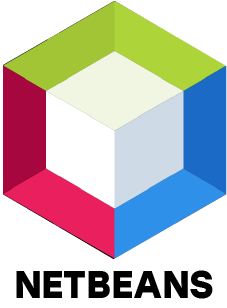Java is one of the most common computer languages in the world. Java is a simple, general, object based, interpretive, robust and safe computer language, neutral in architecture, portable and high performance. The aim is to let the application developers "write once, run everywhere" (WORA), so there is no need to rebuild the code running on one platform for another. Both the programming language and the platform are Java technologies. Java is a language of programming that is high level, robust, safe and orientated towards objects. And any hardware or software that runs a programme is called a platform. Enroll in ACTE for the highly demanded Top Java Course in Delhi. The Java training we offers you a great platform to learn and explore industry experts one by one and the experts who teach The Best Java Certification Course have a great experience and sound knowledge about java and make every subject very clearly understood. We dream and work together with our students to achieve this.
Additional Info
Career path in Java:
Out of these roles, companies encourage good programmers. The Java programming career route typically advances in this way for those who start coding. The first job is a junior developer, the next step is the next step. Next there are team leaders, who then move towards a job like an architect. Finally, a competent developer ends up on a management path. Sometimes people with a creative flair move into graphic design. Individual and self-employed types often follow greater corporate paths. In jobs such as software evangelists and other public relations fields, highly social developers who work well with others can enjoy great satisfaction. Technical writing and IT journalism are two other worthwhile fields where software developers can transition easily and must never build a code line again. A career in software development is based on many compelling reasons. A Java career programming path can lead to all kinds of peripheral fields and interesting efforts outside code. A Java Developer needs a Bachelor's or a related field in Informatic Science. Encoding and debugging is carried out by Java Junior Developer. Typically, a Java developer becomes a senior programmer and participates in the development of software after three years of experience. Persons with over 5 years experience can become team leaders and eventually senior team leaders responsible for the department as a whole.
Job roles and responsibilities of Java:
Depending on the company and specific position, the roles and responsibilities of java's developers will be greatly different. here are some typical tasks:
- Design, implementation, and maintenance of high volume and low latency java applications required for mission-critical systems.
- High availability and efficiency.
- Contributing to all developmental phases.
- Design, efficiency and proven code writing.
- Analysis, programming, trials and debugging of software.
- Development of java and java EE apps.
- Ensure that designs meet the requirements.
- Preparation and production of software component releases.
- Convert requirements into requirements.
- Continuous improvement support.
- Alternatives and technologies research.
- Architectural review presentation.
Industry Path In Java:
In the coming years, the need for software developers will increase. This is one of the most rapidly growing jobs. Software developers should consider solutions involving artificial intelligence (ai) and machine learning according to the trade publication tech times. These technologies are adopted very quickly in all industries; more companies are looking for AI software to make better use of their data. Another trend for software developers in the coming years will be the increasing demand for the internet of things (iot). The popularity of devices that can connect to the internet – from smart equipment to wearable technology. Software developers knowledgeable in creating software for intelligent technology will be more demanded by many software companies specialising in iot-sector programming. The increased use of progressive web apps is another trend in software development in the next few years (pwas). It's a type of website which works as a mobile application but runs on a web browser. more companies use them because they can save money without developing a mobile version or mobile app. It offers companies the same advantages as a mobile app instead, offering customers quicker charging times and improved functionality.
Advantages of Java:
-
Java is easy to use:- If a language is simple to learn and understand, it is deemed simple. Java has a simple syntax that is simple to develop, learn, maintain, and understand, and the code is simple to debug. Furthermore, java is less difficult than languages like c and c++ because many of the more sophisticated aspects of these languages, such as explicit pointers, storage classes, operator overloading, and so on, have been eliminated from java.
-
Java is a language for object-oriented programming:- Java is an object-oriented programming language that allows us to increase the code's flexibility and reusability. we may easily reuse the object in different programs thanks to the oops idea. It also assists us in enhancing security by combining data and functions into a single unit that is not accessible to the outside world. it also aids in the organization of larger modules into smaller ones, making them easier to comprehend.
-
Java is a safe programming language:- By minimising the usage of explicit pointers, java decreases security concerns and dangers. a pointer is a value that maintains the memory address of another value that can be used to gain unwanted memory access. The problem can be solved by eliminating the concept of pointers. In addition, each java program has a security manager that allows us to create class access constraints.
-
Java is low-cost and low-maintenance:- Because java programmes require a specific hardware infrastructure to run, they are inexpensive to design and maintain. We can quickly perform them on any system, which saves money on maintenance.
-
Java is platform-agnostic:- Write once run anywhere (WORA) is a powerful platform independence capability that java provides to its users. Java's compiled code, or byte code, is platform-agnostic and may execute on any machine, regardless of the operating system. as demonstrated in the diagram below, we can run this code on any system that supports the Java virtual machine (JVM).
-
Java is a high-level programming language that allows you to do the following:- Java is both a high-level and a human-readable programming language. It is akin to human language and has a very simple and easy-to-maintain syntax that is similar to the c++ language's grammar but in a more straightforward manner.
-
Java has a feature called portability:- Because of its platform independence, Java is a portable language. because Java code may run on any platform, it is portable, meaning it can be taken to and executed on any platform. As a result, java also has the benefit of portability.
-
Automatic garbage collection is available in java:- The java virtual machine takes care of autonomous memory management in java (JVM). Objects do not need to be dereferenced or removed by explicit programming when they are no longer used by programs and do not refer to anything. With the help of the automated garbage collection process, java automatically removes useless objects.
-
Multithreading in java is supported:- Java is a multithreaded language, which means that it can run multiple threads at once. The smallest unit of a process is the thread. multithreading allows us to get the most out of our computer's processing power. the application's efficiency and speed are improved by having multiple threads share a common memory space. These threads run in parallel without interfering with one another.
Career Opportunities in Java:
Developer Frontiers:- Developers specialising in visual user interfaces, aesthetics and designs. They create web applications and websites while their codes run on web browsers and on the site user's computer. They are focused solely on understanding the interaction and design of human machines rather than on theory. They have skills such as UI, UI designs, CSS, javascript, HTML, and UI framework applications.
Developer Backend:- The backend developer is specialised in the design, implementation, functional logic and performance of a system running on a remote end-user machine. a server, application, and a database are used to construct and maintain these components at the back of the website. a backend developer helps. this allows them to exist on the user side of the website. java, c++, ruby, python, scala and go are their skills for development.
Developer Full Stack:- A complete developer of stacks works for a site on both the front and back ends. They have the skills necessary for a fully working website to be created. As a full-stack developer, you will have more chances as you work on the server-side and the customer side. An entire stack developer's skills would be a combination of a front and the back. A complete stack developer should be able to install Linux servers, type server APIs, power an app on the javascript client-side and focus on CSS.
Developer for mobile devices:- Mobile developers write code for mobile applications like tablets and smartphones. Only following the mobile device boom in the early 2000s and smartphone market growth started mobile developer's popularity. A mobile developer understands the software systems used for such systems, including the ios, android, and the environment and framework. They have a variety of development capabilities, like java, swift, objective-c, application programming interfaces, and web development languages.
Game designer:- Being a game developer is difficult and time-consuming. They specialize in game writing and have a strong understanding of how to create interesting interactive gaming experiences. Frameworks like directx, OpenGL, unity 3d, and WebGL, as well as programming languages including c, c++, and java, are used by game developers. ios and android games use swift and java on mobile devices.
Developer for data scientists:- Programs are written by data scientist developers to analyse data collections. statistical analysis, machine learning, and predictive modeling are usually their responsibilities. a data scientist's skill set should include a variety of science-related subjects. programming languages (r, python), different methodologies that are a valid approach, machine learning methods, multivariable calculus, and linear algebra, and dealing with data flaws are only a few examples. for these types of engineers, being able to express any flaws and calculations is crucial.
7. Product Manager:- A product manager's role in the field of artificial intelligence is to solve difficult problems by strategically collecting data. You should be able to identify relevant issues that are impeding business operations. The next step is to obtain related data sets to aid in data interpretation. Following data interpretation, the product manager must estimate the business impacts of the data interpretation results. Every organization requires a product manager, whose demand has skyrocketed in recent years.
Developer in DevOps:- Developers that work in DevOps are conversant with technologies that allow them to create, deploy, and integrate systems as well as manage back-end software. to put it another way, a developer builds apps, an ops deploys and manages those applications, and a DevOps can both create and deploy and monitor those applications. Kubernetes, Docker, apache Mesos, Jenkins, and other DevOps skills, as well as the hashicorp stack, are required.
Developer of software:- A software developer is responsible for finding, designing, installing, and testing a software system that was designed from the ground up for a corporation. they make these to make sure the operations are going smoothly. coding languages such as javascript, c++, ruby, c#, and.net, to mention a few, are required abilities for a software developer. these developers should be able to write and analyze queries as well as work with a variety of frameworks.
Web designer:- Web developers work in a similar capacity to software developers, however they focus on the creation of websites. web developers are growing at the same rate as other developers in today's globe, despite the fact that they haven't been around as long as other developers and simply require a basic understanding to begin. HTML, CSS, FTP, javascript, and WordPress are all skills that web developers must have.
Developer for security:- Security developers provide systems, techniques, and procedures for testing and repairing security problems in software systems. To do their task, they use a number of technologies, including scripting languages like python and ruby. They also read and understand operating systems using coding languages like c and c++. Their duty is to responsibly hack systems in order to discover their flaws.
Characteristics of Java:
Let us look at some of the benefits of artificial intelligence that make people think of it in the same way they think of electricity.
-
Object-oriented design:- Everything in java is an object. because it is built on the object model, java can be easily extended.
-
Independent of platform:- Unlike many other programming languages, such as c and c++, java is compiled into platform-independent bytecode rather than platform-specific machine code. This byte code is distributed over the internet and is interpreted by the virtual machine (jvm) on the platform on which it is run.
-
Simple:- Java is intended to be simple to learn. it should be simple to master if you understand the fundamental concepts of oop java.
-
Secure:- Java's secure feature enables the creation of virus-free and tamper-proof systems. public-key encryption is used in authentication systems.
-
Architecture-neutral:- With the inclusion of the java runtime system, the java compiler generates an architecture-neutral object file format, which makes the compiled code executable on a wide range of processors.
-
Portable:- Java is portable because it is architecture-neutral and has no implementation-dependent features of the standard. The java compiler is developed in ansi c, which is a posix subset, with a clean portability border.
-
Robust:- Java focuses on compile-time error checking and runtime error checking in order to eliminate error-prone situations.
-
Multithreaded:- It is feasible to develop programmes that can accomplish multiple tasks at the same time using java's multithreaded capability. developers can use this design aspect to create interactive applications that run smoothly.
-
Interpreted:- Java byte code is converted to native machine instructions on the fly and is not saved anywhere. because linking is an incremental and light-weight process, the development process is more quick and analytical.
-
High-efficiency:- Java achieves high performance through the usage of just-in-time compilers.
-
Distributed:- Java was created for the internet's distributed environment.
-
Dynamic:- Because it is meant to adapt to a changing environment, java is considered more dynamic than c or c++. java programmes can store a large quantity of run-time data that can be used to verify and resolve object accesses in real time.
Salary Package of Java:
An entry-level java developer earns around 277,518 per year. When he advances to the mid-level, the average Java developer salary ranges from 410,306 to 839,714 per year. The average salary for a senior java developer is around 1,373,565 per year. Payscale says a java developer has an average salary of 69,722 per annum with averages of 47,169 to 106,610 per annum. In San Francisco and Arlington, the highest-paid java developers receive an annual average of 97,000. When you move into a senior role as a java developer, you get an average annual wage of 95,787 with a reported salary range of 70,257 to 139,132 a year. In Washington, Seattle, and San Francisco, senior java developers are the best paid and have averages of 124,000, 122,000, and 120,000, respectively.








































